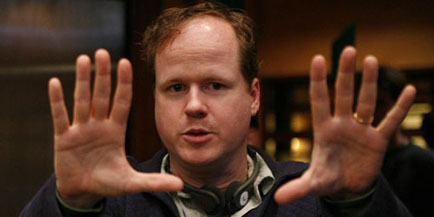|
|
Mythology: Joss WhedonBy Martin FelipeMay 1, 2012
By the time Dollhouse premiered, fans had developed expectations of Whedon’s mythological ambitions. When the initial episodes seemed so tame, the show’s reputation was tainted. Fans considered it a compromised vision, constrained by a network that didn’t understand what makes Whedon’s work special. There may be some truth to this. I don’t know. Thing is, Dollhouse was following the Buffy/Angel model. It was establishing the basics, then beginning to play within the world. Even the harshest of critics noted an upswing in quality as the season progressed. Then, against all reasoning, the low rated project lucked into a second season renewal. I’m sure that Whedon and his team realized that this was a mere stay of execution, not a sign of a long run. As such, the second season is far bolder, really examining themes of identity and individuality, while also expanding the reaches of the Dollhouseverse to show how deep into the world its influence spreads. The season finales of both indicate nothing less than apocalyptic consequences of the Dollhouse. This is a mythology that had so much room to grow and expand. Despite a somewhat maligned and unfair reputation, Dollhouse has the potential to be as fully formed, clever, and richly thematic as any of Whedon’s other mythologies. And now, with the release of Cabin in the Woods, he’s done it again. Not that the box office is explosive, but it’s likely to make back its investment and live a long life as a horror classic. The reviews are as enthusiastic as ever for his work. And, within a month’s time, unless there’s some sort of unforeseen Dollhousepocalypse, The Avengers will give us his first ever blockbuster. It’s not a Whedon project in the strictest sense; he’s working in a universe Marvel created for him. But who knows? Perhaps the clout it grants him will lead to another of his personal projects, like a sequel to Dr. Horrible (a notable Whedon work that I couldn‘t end this column without at least mentioning). Whatever he does next, I’m already on board. The dude’s earned it. While mainstream success may have eluded him, those of us who appreciate long form genre storytelling know that it just doesn’t come any better that the work of Joss Whedon.
|

|
|
|

|
Thursday, April 25, 2024
© 2024 Box Office Prophets, a division of One Of Us, Inc.


